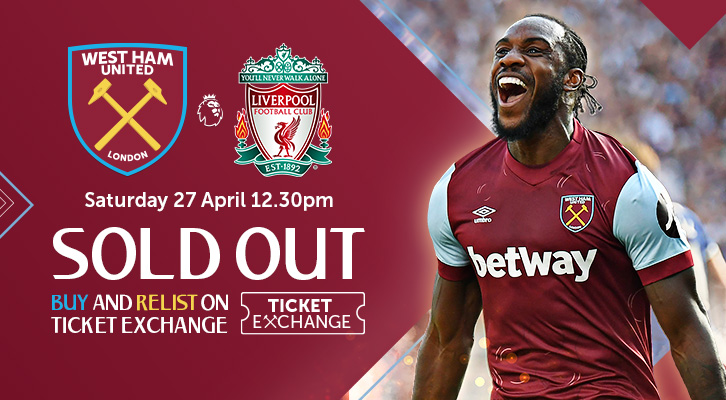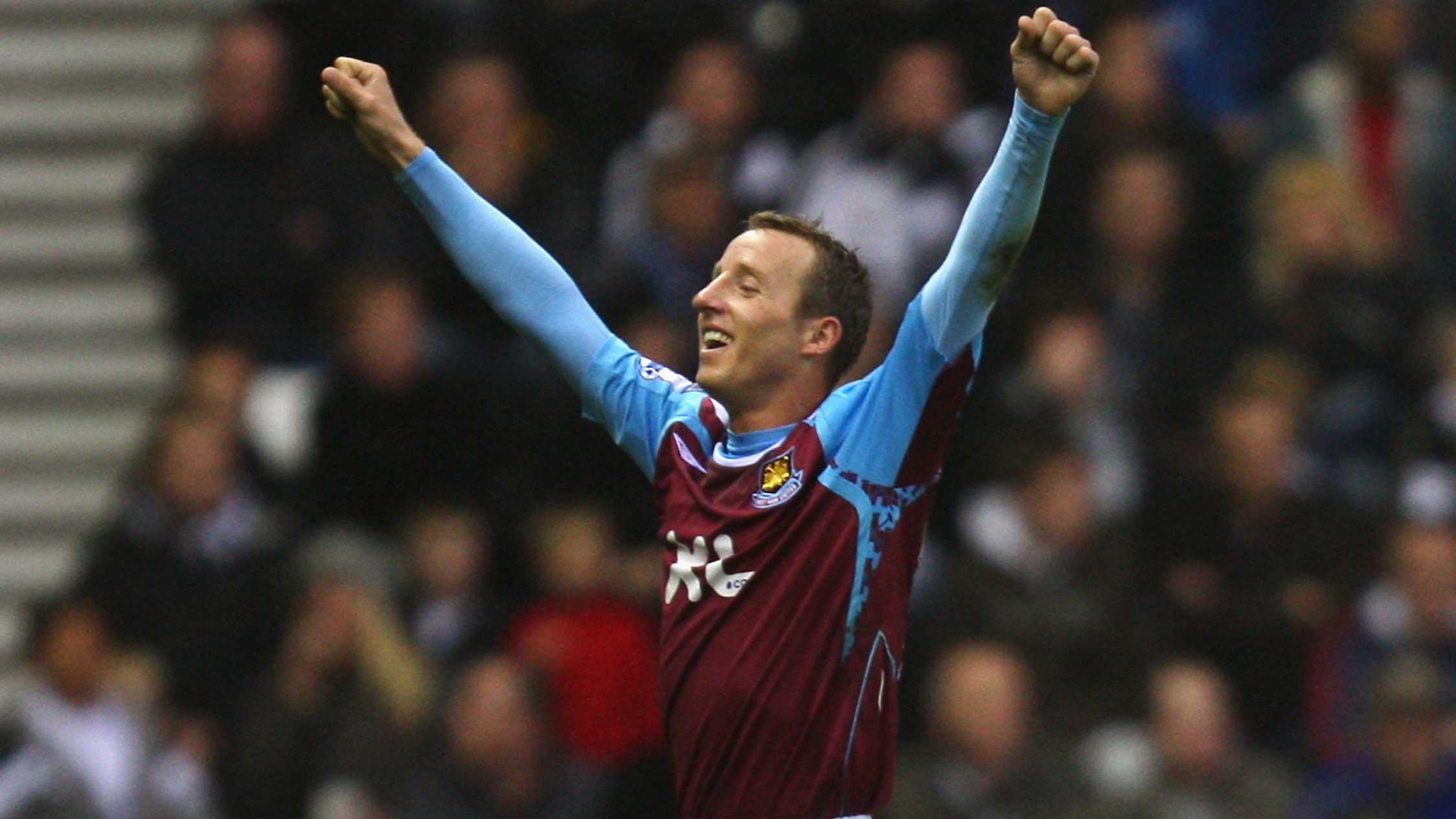Lifelong Hammer Lee Bowyer's unique career has taken him from east London to Montserrat, via Leeds, Charlton and Birmingham...
In every word he spoke, an unwavering passion for West Ham United shone through. Lee Bowyer might not have racked up as many appearances in Claret and Blue as he had hoped, but there is no doubt that he is a true Hammer.
Born and raised in nearby Poplar, Bowyer used to stand on the North Bank terrace of the Boleyn Ground watching his beloved West Ham and, before he knew it, he was soon part of the Club’s Academy at the age of seven, having been scouted from famous east London youth side Senrab FC, who have arguably produced more elite-level footballers than any other grassroots club.
“From a young age my dad used to take me to West Ham games, he always said he used to have to carry me because I wasn’t even old enough to walk,” Bowyer told the Hammers' Official Matchday Programme.
“When I got a bit older, I watched the likes of George Parris, Ray Stewart, Julian Dicks and Billy Bonds through all the different eras. Paul Ince was there as well - I was at that cup game where he scored two goals against Liverpool [in November 1988]. Those were the days I went to Upton Park and was loving it.
“I was playing for Senrab as a kid and got scouted by West Ham at seven years old, you get asked to come along, train and are learning from good coaches. At a young age I was turning up in my West Ham kit as a fan with a smile on my face, it was an amazing feeling.
“West Ham are known for bringing kids through the Academy, even now, you look at the players coming through, and they will continue to produce them because of the networking in and around east London.”
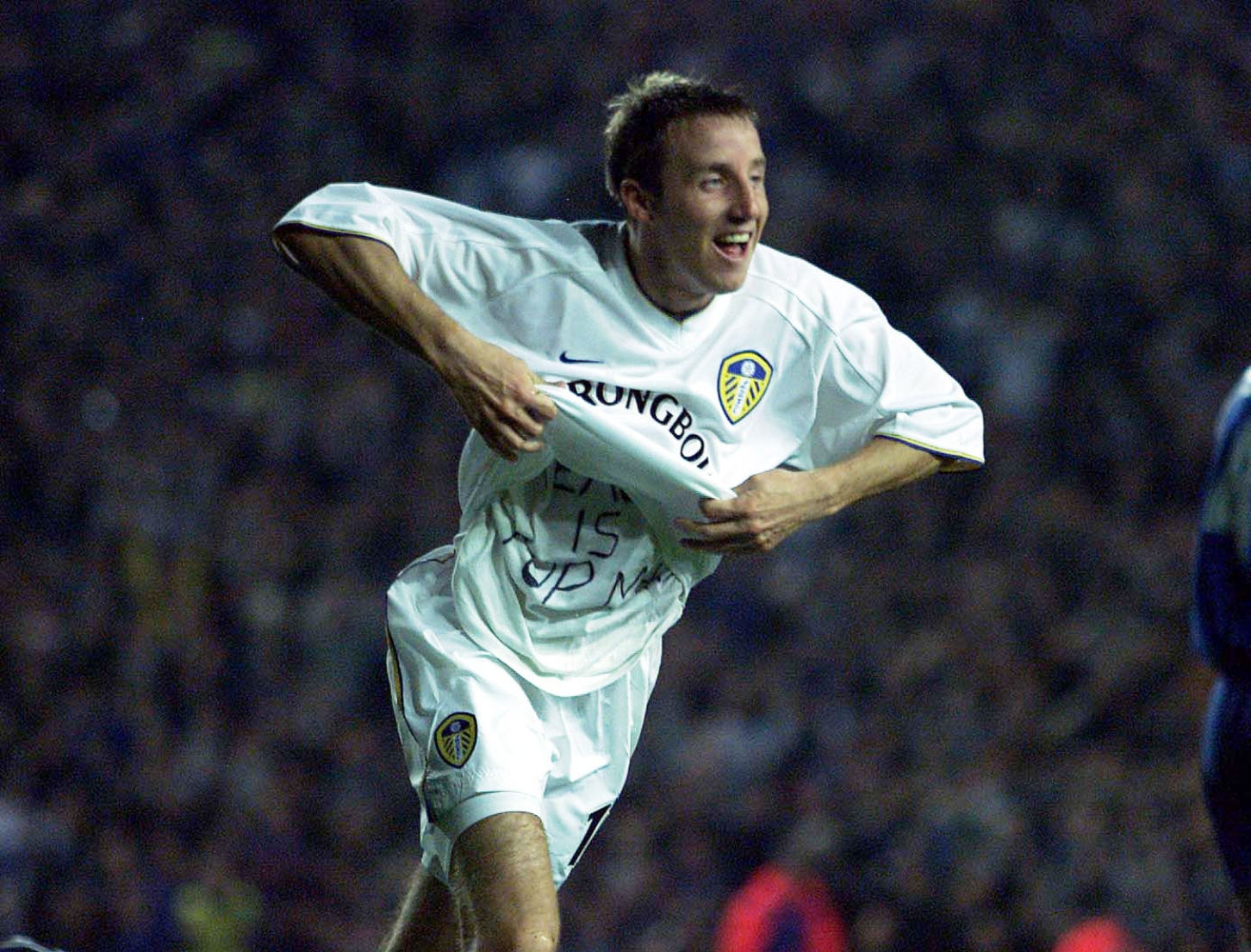
A Great Group
But it was at Leeds United where Bowyer made his name and, after becoming the most expensive teenager in English football when he moved north from Charlton Athletic, he established himself as a mainstay box-to-box midfielder in the team that challenged for the Premier League title and reached the semi-finals of the UEFA Champions League.
“How I never won anything with that group of players [at Leeds United] was crazy," said Bowyer. “And to think I went on to win one of the cups with Birmingham that, without being disrespectful, was one of the weakest Premiership squads I played with.
“It was such a young squad as well that had come through the Academy. We had the likes of Ian Harte, Harry Kewell, Jonathan Woodgate, Alan Smith and Paul Robinson.
"They signed Rio [Ferdinand] from West Ham, [Mark] Viduka, Jimmy Floyd-Hasselbaink and Robbie Fowler. It was ridiculous. We had a great camaraderie and a great group of lads.
“They [Leeds United] were very important in my career. When I was a kid at Charlton coming through, I was a bit raw, but I knew what I was good at, had a good engine and knew I could finish.
“I was more of a 'get forward and score goals' type of midfielder, but then George Graham came in and said, ‘I’m not going to play you until you start doing the defensive side of the game’. I was thinking there was no way he was going to drop me as I was flying, but he did. He said there is two sides to a game, to get forward and defend, so I had to work on that.
“If it wasn’t for George [Graham], I wouldn’t have become the all-rounded box-to-box midfielder that I eventually became. I owe a lot to him.”
Regrets
After turning down a life-changing move to Liverpool, he answered the calls for help from his boyhood Club, joining on a six-month contract until the end of the 2002/03 season in a bid to help the Hammers avoid relegation. Despite the midfielder's best efforts, it was a spell hindered by injuries, frustration and ultimately, relegation from the Premier League.
A £9m move was agreed to Gerard Houllier’s Reds, but as he lay on the treatment table undertaking his medical, Bowyer decided it wasn’t right for him, though looking back over 20 years on, he admits it’s one of the biggest regrets of his storied career.
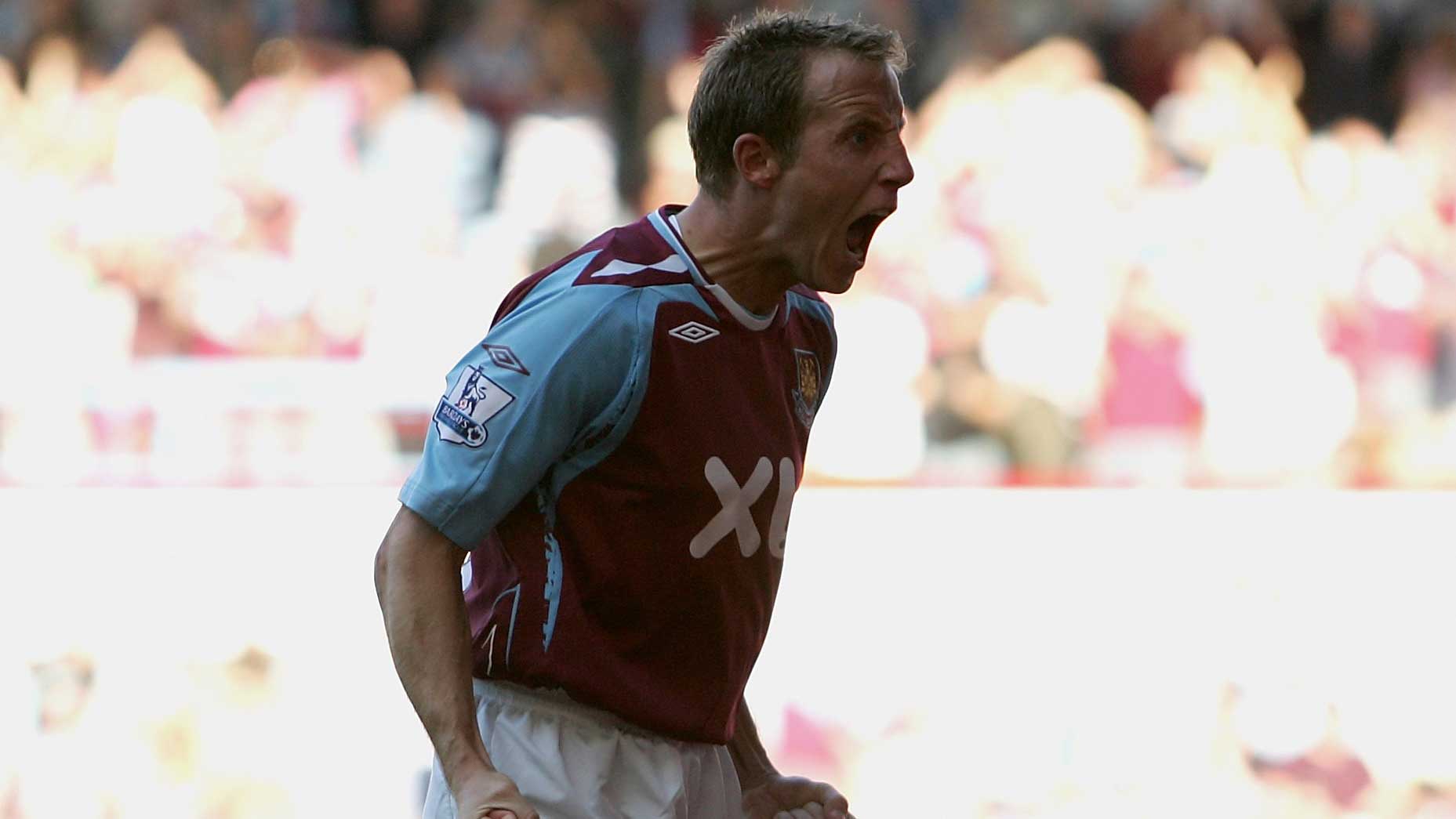
“I heard building up to January [2003] that West Ham were interested in me, and a move to Liverpool didn’t feel right for me at the time,” said Bowyer. “I was there [at Liverpool] having my medical, the deal was done. Hindsight is a wonderful thing, but I look back now and it’s one thing I regret in my career, the one thing I look back on and say, ‘I should have done that’. It was a mistake.
“Once Glenn Roeder came knocking, I was set on going back to the Club I supported growing up. As a kid, being a big West Ham fan, your ambition is to always play for your boyhood Club and I was no different, so that’s why I came in January, as I could see they were in trouble. I went with my heart to come and try help them survive and stay in the division. It didn’t work out, which obviously hurt, so that’s why I had to come back the second time."
Holiday Camp
When Bowyer completed his move to east London in January 2003, his boyhood Club were in serious danger of falling through the proverbial relegation trapdoor.
The notion of a team being ‘too good to go down’ is thrown around often, though it has surely never been disproved as much as when the Hammers dropped out of the top-flight that season.
Roeder’s squad was packed with star-studded international players, while also having some of the most exciting talent in the country.
An 18th-place finish condemned them to relegation despite amassing 42 points – a tally that still remains the highest recorded by a team to have suffered Premier League relegation.
But Bowyer, unlike several other ex-Hammers, admits he saw a different perspective and wasn’t surprised to see his supported side in trouble after making the switch from Elland Road.
He said: “I couldn’t get my head round why we were in that position as we had so many good players, such as Michael Carrick, Joe Cole, Trevor Sinclair. How were they bottom? I wasn’t judging anyone but looking back that was my fault. It was frustrating.
“But when I turned up it was crazy, it was like a holiday camp. After being there for a few weeks, I could see why they were where they were.
“The thing that hurt the most was that I couldn’t help them to my full potential, and I was so restricted with my ankle. My intention was the right one to come and help and do everything I can to help West Ham stay up but, in the end, I was so limited in what I could do, to the extent I couldn’t even play at all. Not being able to fulfil my intention is what hurt the most as I couldn’t show the fans what I knew I was capable of doing.
“We all knew what the situation was. We all knew I had already agreed to join Newcastle that summer. I was literally just coming to help for that short period of time, but that’s why I had to come back the second time because I had unfinished business here and I had to show the player I should have been before.”
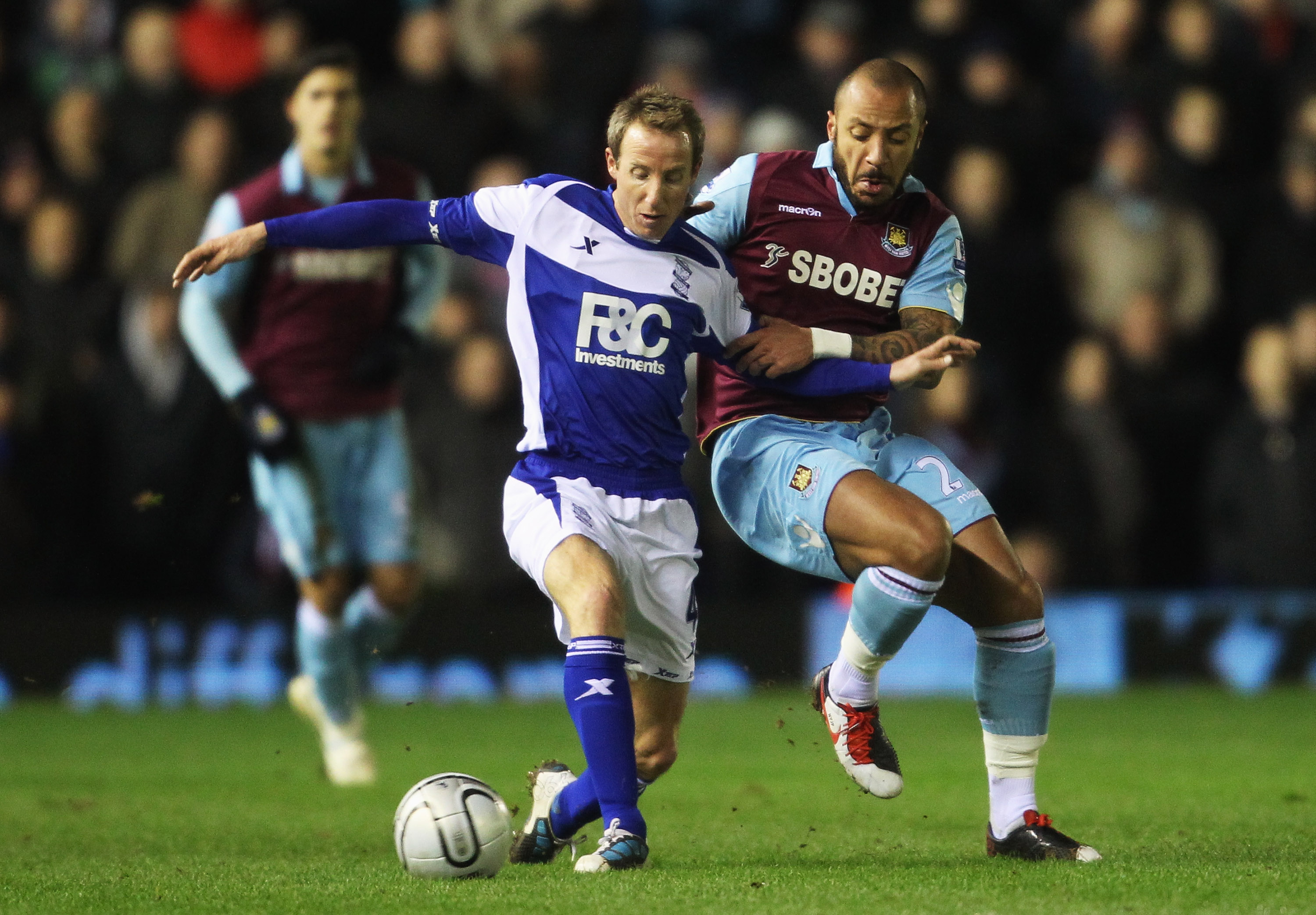
Unfinished Business
Bowyer was among a large number of departures after the Hammers suffered relegation, as he joined Newcastle on an already pre-agreed deal. And after three successful seasons with the Toon, having felt there was some 'unfinished business' to be completed with West Ham, Bowyer returned in 2006 on a permanent transfer to show his true, authentic self after his good friend Alan Pardew offered him a move he couldn’t refuse, with the Irons chasing European football.
“Newcastle were trying to keep me there, and offered me a new contract, but when West Ham came in it was a no brainer and I had to take it and put things right,” Bowyer said. “The most important thing for me was showing everyone what I could bring if I was fully fit. The way things ended the first time around, people would have thought I just left them and that was never the case.
“I’ve ticked every box that every West Ham fan would want to do, although 71 appearances does disappoint me as I wanted to achieve more. It's amazing [playing for your boyhood Club] and walking out to songs like 'Bubbles' that you used to sing on the terraces is special. It gives you goosebumps thinking about it!
"The first spell was disappointing as I didn’t manage to help us, while the second time around I felt as if I’ve given [it a go] properly, been fit, and scored goals when I stepped onto the pitch. When I did leave, I knew it wasn’t in my control anymore but at least I gave everything and put some things right."
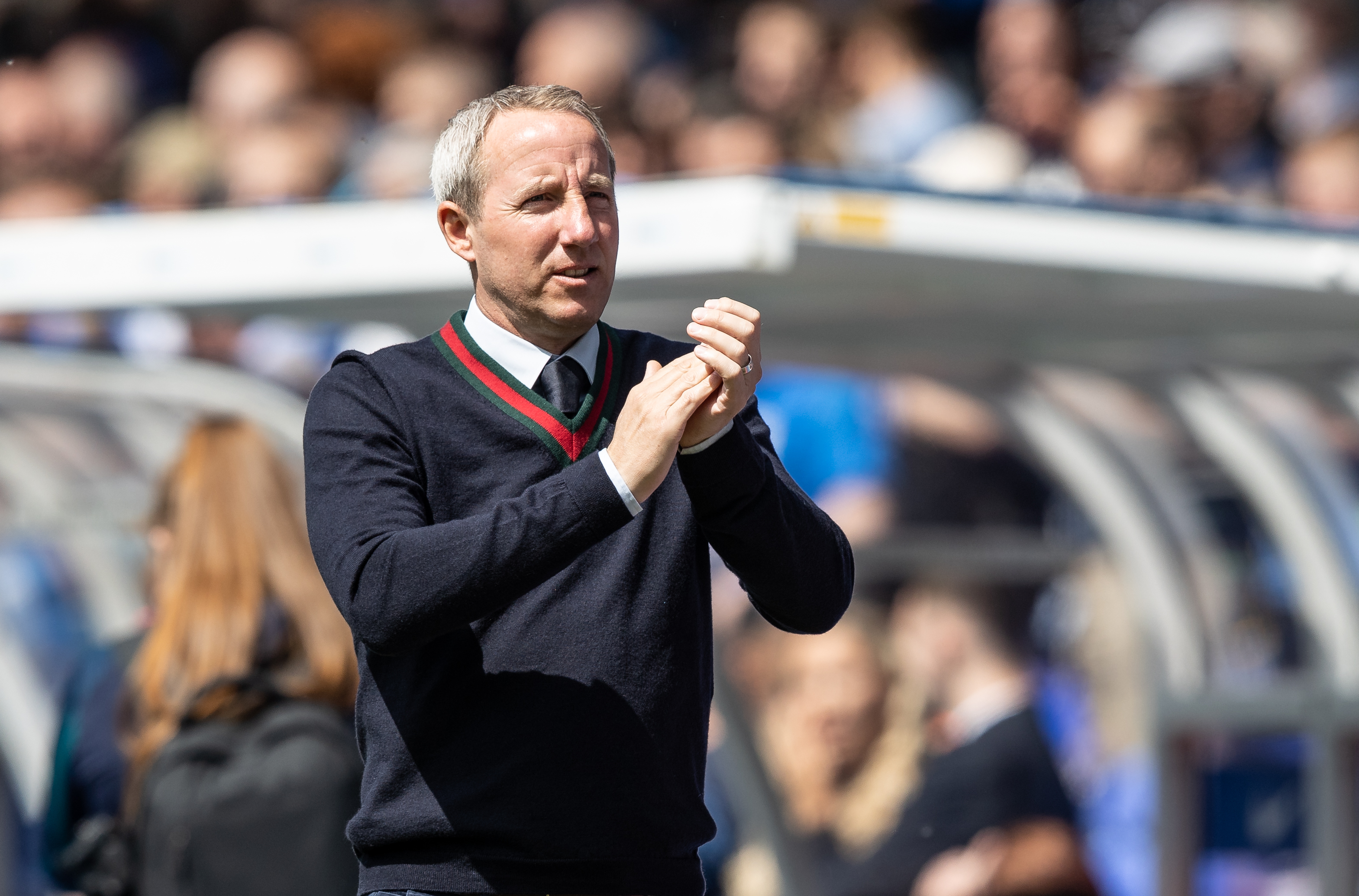
The Winning Feeling
Bowyer was ultra-competitive as a player, though when the curtain came down on his 18-year career after a spell with Ipswich Town in 2012, the initial plan was to end his long-term relationship with football.
However, fast forward six years, and he was put in caretaker charge of Charlton Athletic after Karl Robinson’s departure – and the rest is history.
He was soon appointed permanent manager and in his first full season got the Addicks promoted to the Championship via the Play-Offs.
Bowyer then replaced Aitor Karanka at Birmingham City in March 2021, and steered the Blues to safety not once, but twice, before stepping down.
Now, the 47-year-old is loving life as manager of Caribbean Island Montserrat and has ambitions of taking them to the 2026 World Cup.
“I had no intention of going back into football full stop," he explained. "I was sitting at home one day and said to myself that it is a waste if I don’t pass on my knowledge that I was lucky enough to gain as a player, it felt wrong. I started to do a bit of coaching and it’s just escalated. I did really well with Charlton and loved the winning feeling. No one ever remembers second. That’s why I now love being a manager.
“It’s something completely out of my comfort zone and different. What I like about the international football is that they are one-off matches, so every time we meet up, we are there for two games. Anyone can win in that one-off game and that’s what I like about it. When you are in the Championship, you can tell what’s going to happen most of the time.
"The people of Montserrat have an ambition of getting to the World Cup and I enjoy it as I'm working with a lot of non-league players. Is it going to be tough? Of course it is. We are ranked 176th in the world. When I leave, I'll leave them in a better place."
